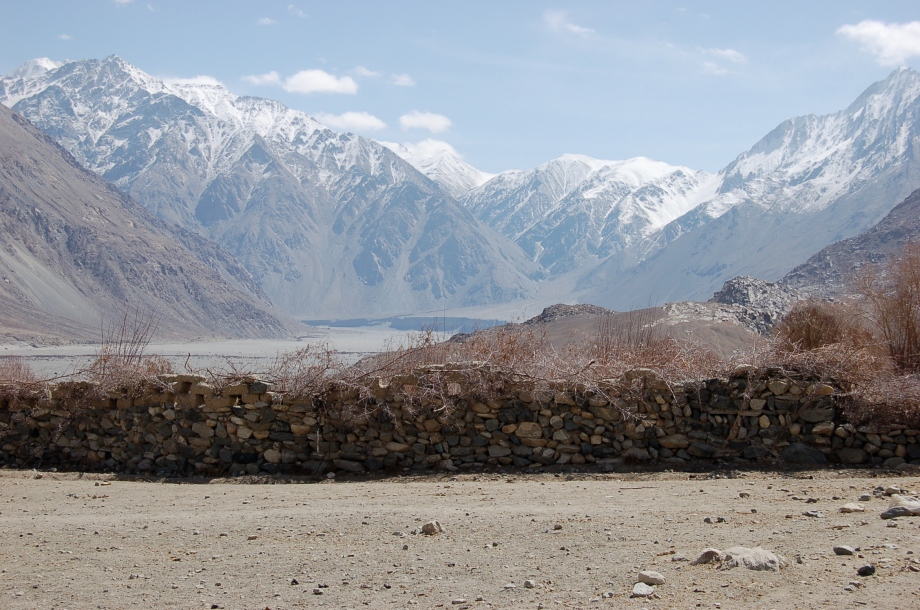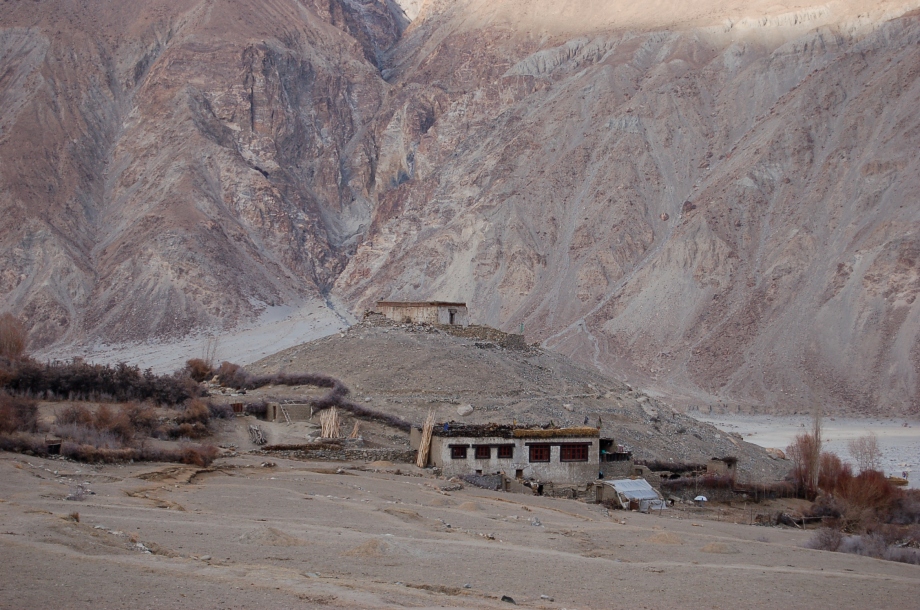
In Tibetan Buddhism, the monastic communities are responsible for the spiritual well-being of the lay people. They look after the spirit and pray for the soul. They tend to the gardens of the metaphysical, the reincarnations, the next lives, the past and the future. And in turn, the people provide them with the things necessary for this world, offerings of food, tea, cash, oil for the lamps and candles. The ground we are standing upon and the roof over this monastery have stood in the spot for five centuries. The monks have been tucked beneath folds of crimson cloth, beneath shorn heads and behind closed eyes and focused exhalations of repeated prayers, through continuous lifetimes, across centuries, over and again.
There is no demarcation between religion and culture for Tibet or Ladakh; they are one and the same, tightly bound, beautifully woven, into a long, thick braid.
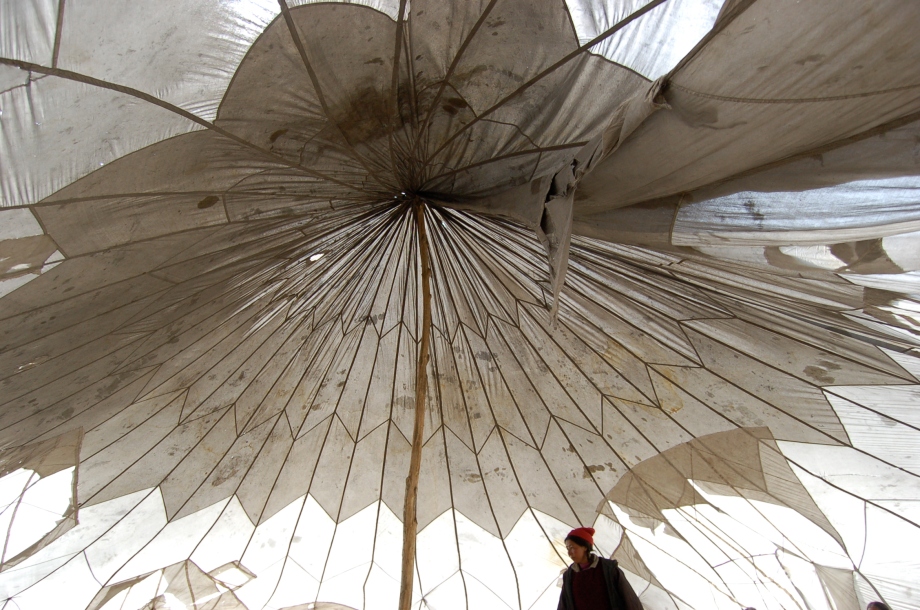
A large white tent is erected in a wide clearing. Inside villagers sit on cushions that line the edges, in a wide sort-of circle. There is a sound of vibration, a reverberating humming, the air is thick, heavy with it, like standing near a beehive. The sound is tangible. We kick our shoes off silently, duck under the curtain, and slip in through the slot of the opening. I follow closely behind the girls, sitting quickly on the cushion next to them. Each person is thumbing mala beads or spinning a prayer wheel with a winding wrist; exhaling words of prayer and inhaling them in again, with each drawn breath. Bodies are swaying side-to-side, back-and-forth, slight movements, like leaves dancing in a light breeze.
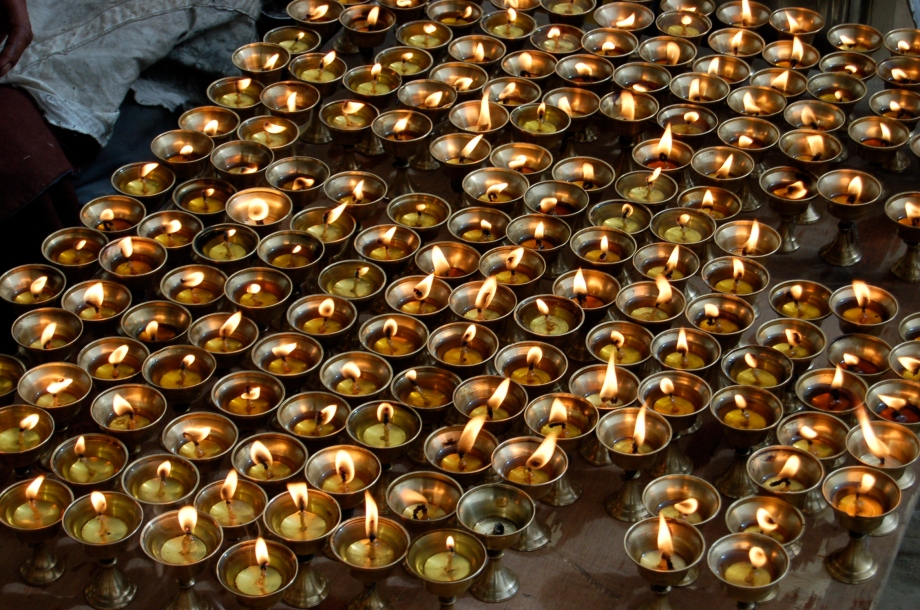
Each member is murmuring offerings; adding their individual share of prayers to the communal lot. They are stockpiling prayers, stringing them together like beading a necklace, so that the whole of the thing is more powerful, more beneficial, more amplified in unison. Piecing them together to make a whole, many breaths are interwoven into one meditation for the village and its future, for a people and their home. For wishes and hopes and blessings, for health and for safety, for their siblings and children and animals and crops. For the Lamas and Rinpoches seated in the monasteries, for all sentient beings, for each other. Over and over again. Over generations and time. Two men in the center of the tent are lighting the wicks of butter candles, laid out on a flat surface, flickering like tea lights. The collection of prayers and small flames and smoke move upward to an opening at the top of the tent, and then, out into the world.
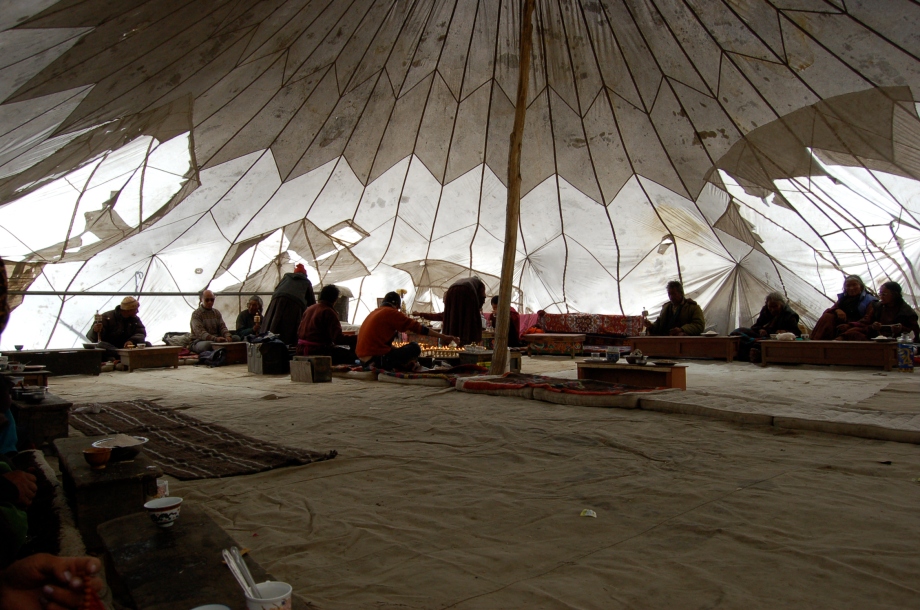
The room is filled with many elders, and women of all ages, and children. Some children are sitting in the crease of their mother’s laps, others have been released outside to run and play. A handful of children are piled at the entryway, small shoulders pushing and round faces stacking on top of one another to peek inside. A ruffle of little bodies, muffled squeals. I look up at them and realize suddenly what—or who— it is that they are trying to get a look at. I don’t want to be cause for interruption in the sanctity of this space, so I rise, quietly and move out into the sunlight.
I wave at the children, tumbling about and watching me, wondering. I kneel on the ground and take the lens off of the camera slung behind my back. I point the black object in my hands at the huddle, look through it; push a button. They are looking skeptical, intrigued. Eyebrows raised; they are whispering to each other. I move closer and turn the lens toward me, holding out the screen that displays an exact image of them for their viewing. Faces come close, eyes widen.
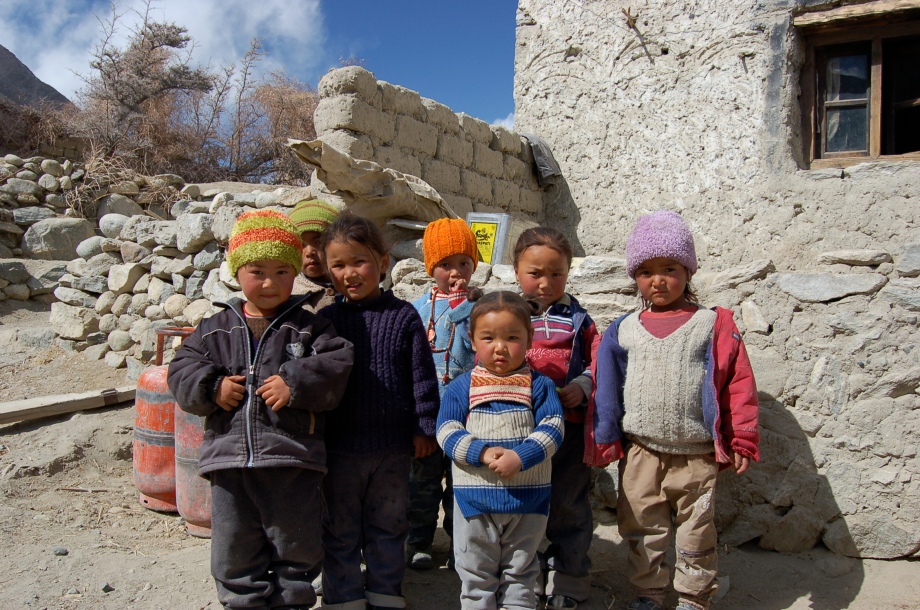
I move back and take another and another. After each shot, they gather around, close enough to touch my sleeve, to lean over my shoulder, to see the picture on the screen: the reflection of them. Then they run back, into an organized pile and wait. For that sound; the click. Another picture of them, frozen, somehow, on this flat screen, from somewhere within this black . . . .thing. The first shots show them tentative, anxious, faces twisted in uncertainty. And then the group grows in numbers as others join in, faces widening into toothy smiles, laughter; astonishment. I know that some of them have never seen a western face before, at least in person, in their own village. But as I watch them peer and blink into the screen of my camera, I realize that they have also never seen a photograph of themselves.

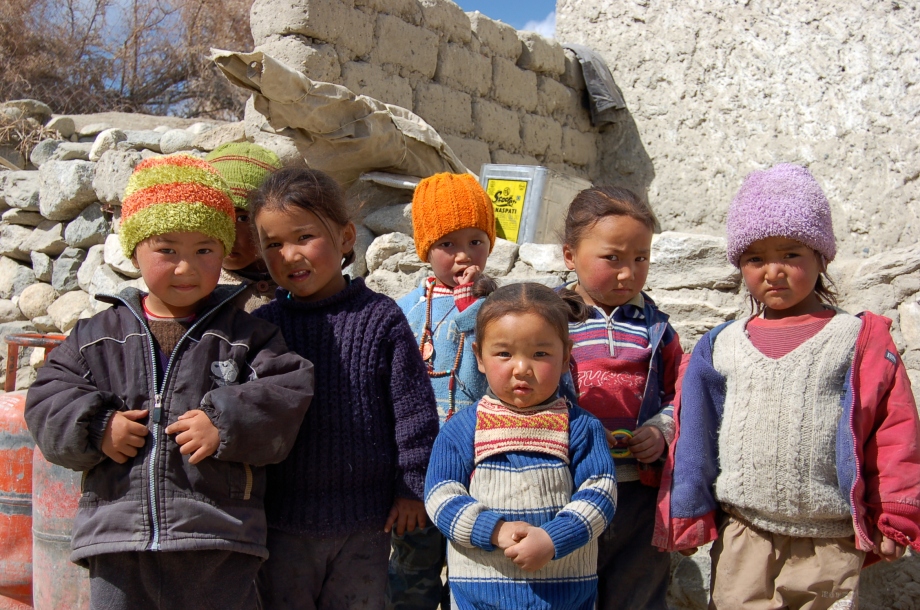
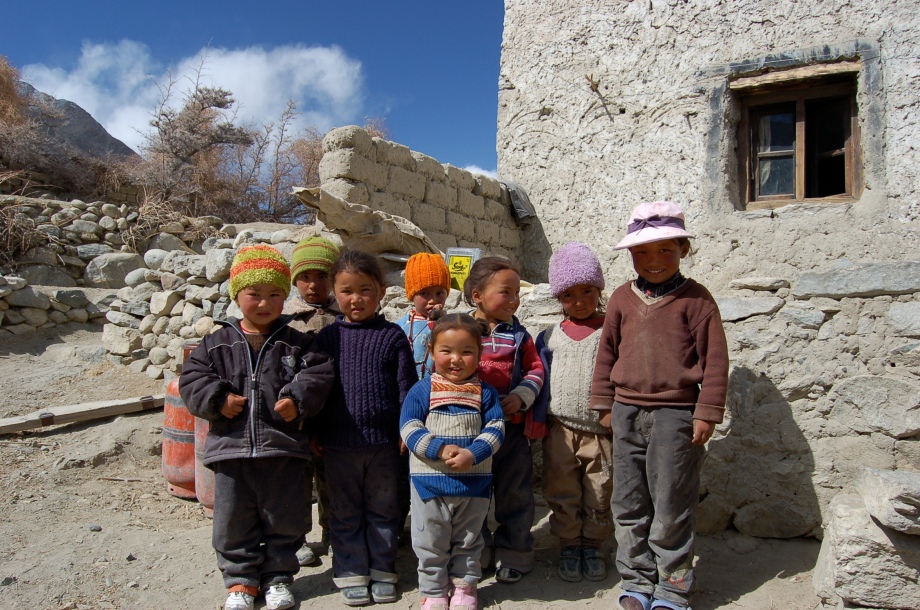
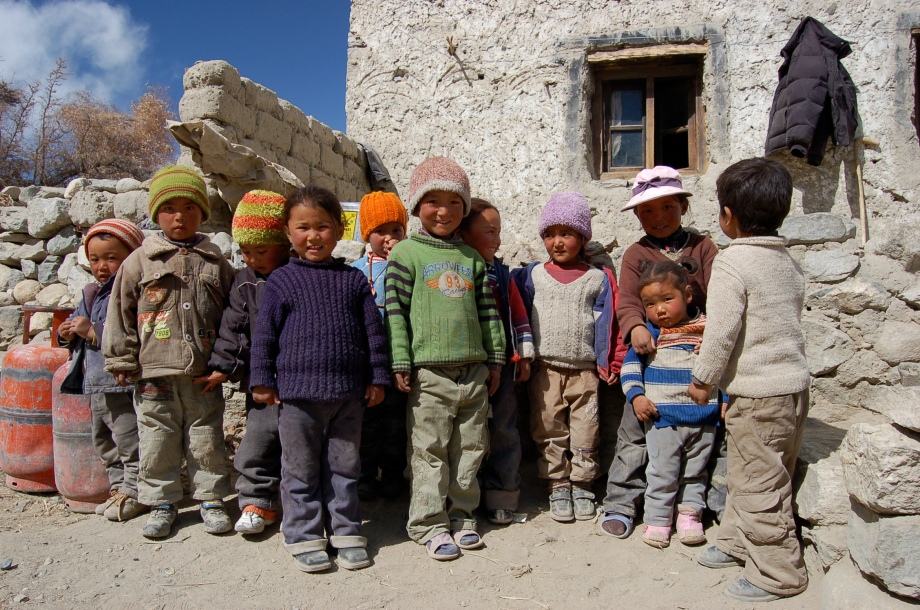
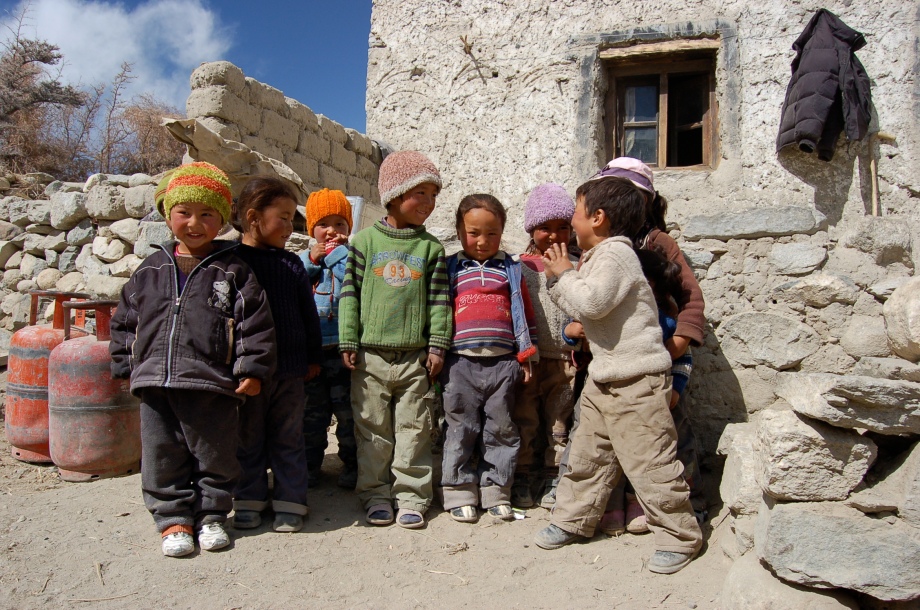
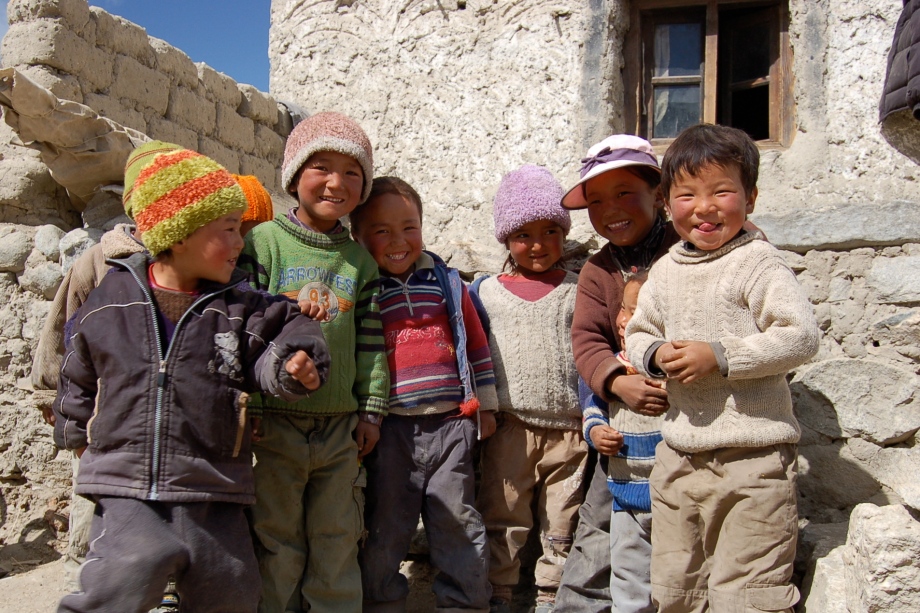
Inside a farmhouse, a group of older women are sitting around an upstairs table in the kitchen with a jug of chang. They are laughing and drinking and laughing until one is dabbing the corner of her tear filled eyes with the corner of her skirt. One has a thick fist curled tightly around the neck of the bottle and is filling everyone’s cup, topping them off, when they look away. There is someone like this in every group of friends. The women place their hands over the tops of their teacups, shaking heads, laughing hard, no more, no more. Their light-hearted pretend protest is overruled, as the one tipping the vessel, clicks her tongue in disapproval and begins to pour anyway, and they are laughing, moving worn hands away, licking the liquid she has dripped from their fingers. Leaning against one another, giggling like little girls. These are the village matriarchs. Together they have raised children who have come and gone and come back again, raised grandchildren who they still carry in baskets strapped to their backs. They have built these houses and worked this land, tilling soil and harvesting its fruits, watching as the season’s stream by, over and again. They have spent this morning, like so many before this, in prayer, turning their mala across the calluses the beads have kneaded into their fingers over a lifetime, in trance-like concentration. Praying for the future of their little village and lives it cradles within it, as they have done over and over.
They hold each other’s history, tell each other’s stories, have comforted and scolded each other’s children. They have seen their daughters leave to join other villages after marriage; their daughter-in-law’s arrive to live beneath their own roofs. They have shared the collective space of this village, their lives intertwined like the thick, gray braids that fall down each of their tired and aching backs. Old friends, around a table, laughing until tears stream down their chapped, glistening cheeks, enjoying good company on a lovely afternoon, tongues clicking and homemade knit hats nodding, just like that, getting perfectly, absolutely, abundantly drunk.
